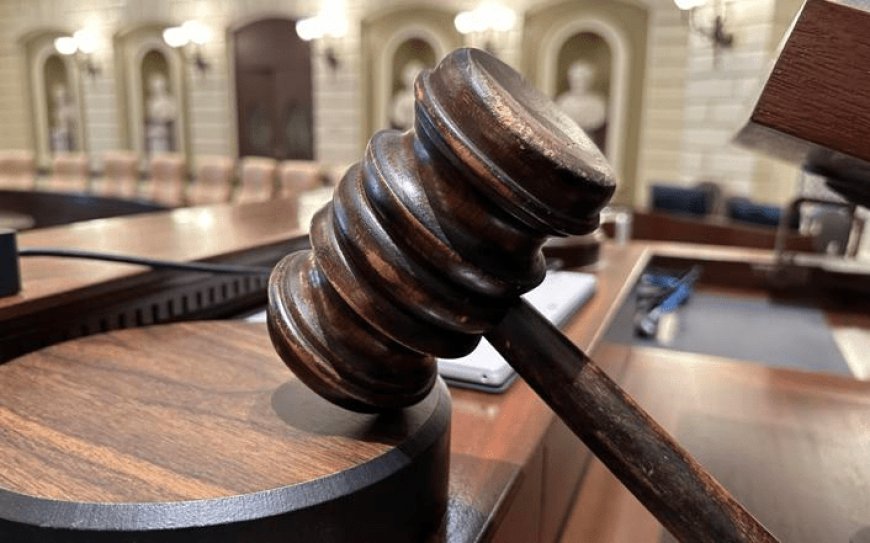Federal threats cited in push for student immigrant protections

BOSTON (SHNS) - Education was the "lifeline" towards stability and opportunity for Emily Romero Gonzalez, who moved to the U.S. at the age of three.
"I grew up undocumented, and knew from a young age that I was different from other students. I couldn't travel to visit my family in Peru, I didn't qualify for certain programs that my peers did, my parents and I couldn't own our own home, and I was constantly visiting lawyers' offices," Romero Gonzalez, now an education advocate at Massachusetts Advocates for Children, recalled.
"But the one thing I knew that I had access to, no matter what, was school, was an education," she added.
Gonzalez and other education, immigrant and disability advocates are flagging urgent concerns about federal threats to education rights for immigrant and disabled students.
Immigrant parents, attorneys and teachers told legislators at a hearing Tuesday that passing a bill codifying federal student protections into state law would help quell fears in immigrant and disability communities under the Trump administration, which has cracked down on its enforcement of illegal immigration and may look to adjust disability services policy since President Donald Trump took office in January.
The Sen. Pavel Payano and Rep. Frank Moran bill (S 436 / H 650) would not add new legal protections, but would codify four different protections related to English Language Learners, immigrant students and students with disabilities established by federal statutes and guidance.
"One in eight Massachusetts students is an English Language Learner, and one in six Massachusetts students has a disability," Payano said. "Federal rollbacks threaten the rights that protect these children. By codifying these rights into state law, we ensure that Massachusetts continues to uphold equity and education, no matter what."
The bill would codify the right to public education for students regardless of their documentation status and codify provisions in special education law protecting students with disabilities from inequitable school suspensions or expulsions directly related to their disabilities. It would also codify federal guidance addressing needs of English Language learners with disabilities, along with those ensuring interpreters are provided by schools and are not just bilingual, but trained and qualified.
Chief Deputy Attorney General Abby Taylor called on the state to codify the protections, harkening back to when Massachusetts codified the right to abortion five years ago, before the Supreme Court overturned Roe v. Wade.
"In 2020, more than a year before the Supreme Court overturned 50 years of legal precedent when it issued the Dobbs decision, the Massachusetts Legislature took action, had the foresight, to pass the Roe Act and to codify abortion rights into statute," Taylor said.
"Today, we find ourselves in a similar situation with a federal government that is hostile to civil rights and to longstanding protections for our students," she continued.
Taylor said the AG's office continues to uphold the federal laws still in place, but the office is flooded with concerns, especially in the context of changes and cuts to the Department of Education, some of which could impact student civil rights. President Donald Trump has filed an executive order to close the Department of Education and "return authority" back to the states, which he said "would provide children and their families the opportunity to escape a system that is failing them."
There has been discussion among Massachusetts elected officials, Attorney General Andrea Campbell included, about whether the United States is facing a constitutional crisis under the Trump administration.
"We drafted it out of concern based on what we were hearing during the election, and then given the outcome of the election, our concerns have only, I think, deepened since the inauguration," said Diana Santiago, legal director at Massachusetts Advocates for Children.
Representatives from groups like nonprofit Reimagining Migration and Mass. Advocates for Children spoke about threats specifically to Plyler v. Doe, the landmark 1982 U.S. Supreme Court case establishing that states must provide free K-12 education to all students, regardless of their immigration status. In New Jersey, Oklahoma and Texas, action challenging free public education for undocumented students has been recently proposed, and in Tennessee, recent action has been paused. The state of California has codified Doe.
Numerous mothers of ELL students also spoke in Spanish, with English translators, about the aspect of the bill that would bolster translation services. Mothers talked about their experiences being unable to participate in their children's educations, or speak with their teachers, because of a lack of available and adequate translation services. Some of the mothers have students in Boston Public Schools, which states that it enrolls over 17,000 English Learner students, 31% of the district's total student population.
Jessica Lander, the 2023 Massachusetts history teacher of the year, teaches immigrant students and spoke about the lack of access to translators for both teachers and parents.
"I see the ways in which our immigrant origin parents are excluded from [Individualized Education Program] meetings, which is absolutely not okay. And so ensuring that we have translators there, available, easily accessible, is really essential to ensuring equal access to education for our kids," Lander said.
WWLP-22News, an NBC affiliate, began broadcasting in March 1953 to provide local news, network, syndicated, and local programming to western Massachusetts. Watch the 22News Digital Edition weekdays at 4 p.m. on WWLP.com.
What's Your Reaction?
 Like
0
Like
0
 Dislike
0
Dislike
0
 Love
0
Love
0
 Funny
0
Funny
0
 Angry
0
Angry
0
 Sad
0
Sad
0
 Wow
0
Wow
0





































